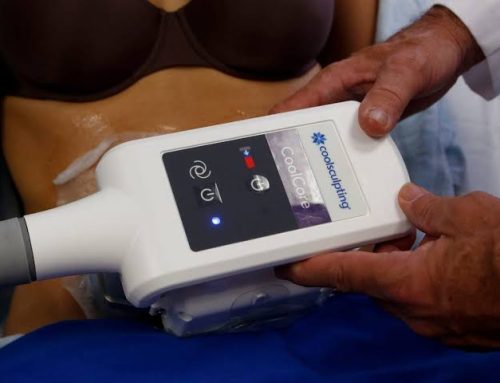- Pourquoi éviter de s'exposer au soleil après chirurgie esthétique?
- Quel est l'impact du bain de soleil après chirurgie esthétique sur la peau et les cicatrices ?
- Pouvez-vous utiliser le solarium au lieu du soleil, après chirurgie esthétique?
- Quels sont les risques potentiels du solarium ?
- Combien de temps après chirurgie esthétique peux-tu bronzer ?
- Conclusion
Introduction
After undergoing plastic surgery, whether cosmetic or reconstructive, it’s essential to prioritize proper post-operative care to optimize healing and minimize complications. One crucial aspect of post-operative care is avoiding sun exposure. In this article, we’ll explore why it’s important to avoid sun exposure after plastic surgery, the potential risks involved, and recommendations for protecting skin health and promoting optimal healing.

Why to avoid sun exposure after plastic surgery?
Sun exposure can have detrimental effects on the skin, especially during the delicate post-operative healing process. The ultraviolet (UV) radiation emitted by the sun can cause damage to the skin cells, impair wound healing, and increase the risk of complications such as hyperpigmentation, scarring, and delayed healing. Additionally, sun exposure can exacerbate inflammation and sensitivity in the surgical area, leading to discomfort and prolonged recovery times.

What is the impact of sunbathe after plastic surgery on skin and scars?
Exposure to UV radiation from the sun can have a negative impact on the appearance and texture of the skin, particularly in areas where surgical incisions have been made. Sun exposure can cause scars to become more noticeable, darker, and raised, leading to suboptimal aesthetic outcomes. Furthermore, UV radiation can trigger inflammation and oxidative stress in the skin, impairing collagen production and delaying the remodeling phase of wound healing.
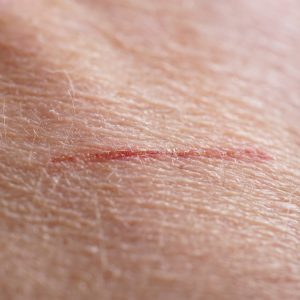
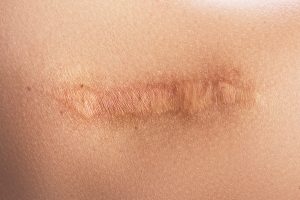
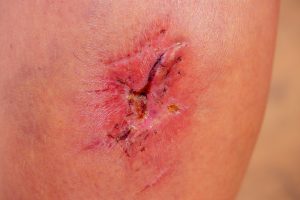
Can you use solarium instead of sun, after plastic surgery?
Solariums, or tanning beds, emit high levels of UV radiation that can be even more harmful to the skin than natural sunlight. The intense UV exposure from solariums can increase the risk of skin cancer, accelerate skin aging, and exacerbate the appearance of scars and pigmentation changes. Additionally, the heat generated by solariums can cause discomfort and irritation in the surgical area, further compromising healing and recovery.
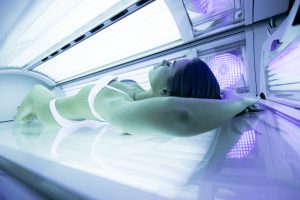
What are potentially risks of solarium?
1. Intense UV Radiation: Solariums emit concentrated ultraviolet (UV) radiation, which can be up to 15 times stronger than the sun’s UV rays. Prolonged exposure to this intense UV radiation increases the risk of skin damage, including sunburn, premature aging, and skin cancer.
2. Increased Risk of Skin Cancer: Exposure to UV radiation from solariums is a major risk factor for skin cancer, including melanoma, squamous cell carcinoma, and basal cell carcinoma. The intense UV exposure penetrates deep into the skin, damaging DNA and increasing the likelihood of cancerous mutations.
3. Accelerated Skin Aging: Regular use of solariums accelerates the aging process of the skin, leading to the development of fine lines, wrinkles, and age spots. The intense UV radiation breaks down collagen and elastin fibers in the skin, causing loss of elasticity and firmness.
4. Exacerbation of Skin Conditions: Individuals with pre-existing skin conditions such as eczema, psoriasis, and rosacea may experience worsening symptoms and flare-ups after using solariums. The intense UV exposure can trigger inflammation and irritation in the skin, exacerbating existing skin conditions and causing discomfort.
5. Eye Damage: Exposure to UV radiation from solariums can also cause damage to the eyes, including cataracts, macular degeneration, and corneal damage. Without proper eye protection, individuals using solariums are at risk of developing long-term eye health problems.
6. Increased Risk for Young People: Adolescents and young adults who use solariums are particularly vulnerable to the harmful effects of UV radiation. Early exposure to UV radiation increases the lifetime risk of skin cancer and other skin-related conditions later in life.
7. False Sense of Security: Some individuals mistakenly believe that using solariums to achieve a tan provides protection against sunburn and sun damage. However, the tan obtained from solariums offers minimal protection against UV radiation and does not prevent the risk of skin cancer or other UV-related skin damage.
In summary, solariums pose significant risks to skin health and overall well-being due to their intense UV radiation exposure. To protect skin health and reduce the risk of skin cancer and other UV-related conditions, it’s essential to avoid the use of solariums and prioritize sun protection measures, including wearing broad-spectrum sunscreen, seeking shade, and wearing protective clothing and eyewear when outdoors.

How long after plastic surgery can you sunbathe?
To protect skin health and promote optimal healing after plastic surgery, it’s recommended to avoid sun exposure and solariums for a minimum of six to twelve months following the procedure. During this time, patients should diligently apply broad-spectrum sunscreen with a high sun protection factor (SPF) to exposed areas of skin, wear protective clothing, and seek shade whenever possible, especially during peak sun hours.
The recommended time to avoid sun exposure after surgery varies depending on the type of procedure, the extent of the surgery, and individual healing factors. In general, it’s advisable to avoid sun exposure for a minimum of six to twelve months following plastic surgery to allow the skin to fully heal and reduce the risk of complications.
During this time, it’s essential to protect surgical incision sites and sensitive areas of the skin from UV radiation by following these guidelines:
- Limit Outdoor Activities: Minimize time spent outdoors during peak sun hours, typically between 10 a.m. and 4 p.m., when UV radiation is strongest. Seek shade whenever possible to reduce direct sun exposure.
- Wear Protective Clothing: Cover surgical incision sites and exposed skin with lightweight, breathable clothing that provides coverage from UV radiation. Choose tightly woven fabrics and dark colors for optimal sun protection.
- Apply Sunscreen: Use a broad-spectrum sunscreen with a sun protection factor (SPF) of 30 or higher to all exposed areas of skin, including surgical incision sites. Apply sunscreen generously and reapply every two hours or after swimming or sweating.
- Use Protective Accessories: Wear a wide-brimmed hat to shade the face, neck, and ears from direct sunlight. Use sunglasses with UV protection to shield the eyes and surrounding skin from harmful UV rays.
- Avoid Tanning Beds: Refrain from using tanning beds or solariums, as they emit intense UV radiation that can damage the skin and exacerbate post-surgical complications.
- Monitor Skin Changes: Regularly inspect the skin for any changes, such as redness, irritation, or unusual pigmentation, around surgical incision sites. Report any concerning symptoms or changes to your healthcare provider promptly.
It’s important to note that individual recommendations may vary based on the specific surgical procedure and the advice of your surgeon or healthcare provider. Some individuals may require longer periods of sun avoidance, especially if they have undergone extensive surgeries or have a history of sun sensitivity or skin conditions.
By following these sun-safe practices and taking proactive measures to protect the skin from UV radiation, individuals can promote optimal healing, minimize the risk of complications, and maintain long-term skin health after surgery. If you have specific concerns or questions about sun exposure after plastic surgery, consult with your healthcare provider for personalized guidance and recommendations tailored to your individual needs.

Conclusion
Avoiding sun exposure after plastic surgery is essential for protecting skin health, minimizing complications, and promoting optimal healing. UV radiation from the sun and solariums can damage the skin, exacerbate inflammation, and impair wound healing, leading to suboptimal outcomes and increased risks of complications. By following recommendations for sun protection and avoiding sun exposure for the recommended duration, patients can support the healing process, maintain skin integrity, and achieve the best possible results from their surgical procedures. Prioritizing sun protection as part of post-operative care is a crucial step in ensuring long-term skin health and aesthetic satisfaction.
Disclaimer: The content on this blog is intended for general informational purposes only. It is not a substitute for professional medical advice, diagnosis, or treatment. Always consult qualified healthcare providers for personalized advice. Information regarding plastic surgery, dental treatment, hair transplant, and other medical procedures is educational and not a guarantee of results. We do not assume liability for actions taken based on blog content. Medical knowledge evolves; verify information and consult professionals. External links do not imply endorsement. By using this blog, you agree to these terms.


